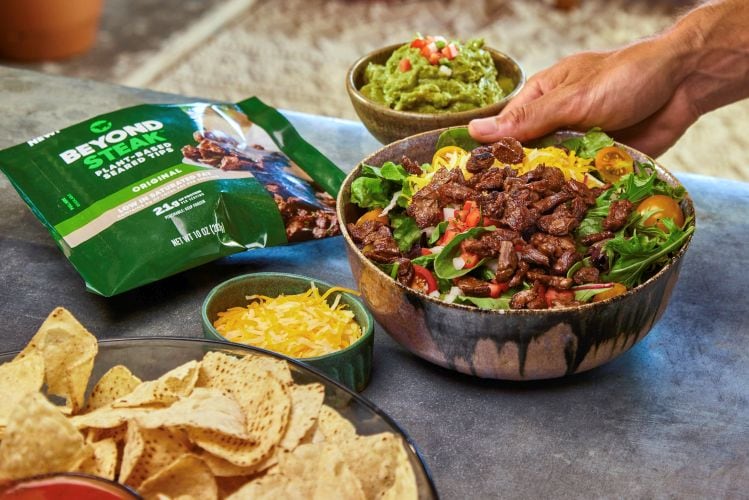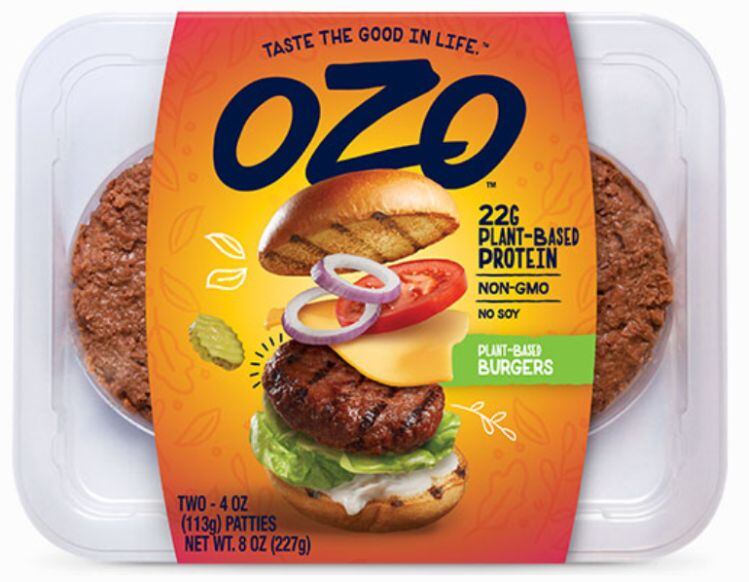Leslie Sims, who has won awards for her “business transforming” work for large companies and has experience across the food segment, including with General Mills, Burger King and Macaroni Grill, will step into the newly created role Jan. 1, leaving behind her position as US chief creative officer at Deloitte Digital.
Sims joins Impossible Foods at a time when sales of plant-based alternatives are plummeting with Brightfield Group’s evergi reporting a 7% decline in plant-based meat/burgers, 6% dip in chicken alternatives and 17% drop in both plant-based fish and sausages in the second quarter of 2022 from the previous year.

The drop has prompted market analysts and some investors who have poured millions into plant-based protein to rethink its future and their involvement. In recent months several high-profile players have pulled out or restructured their approach to the space, including JBS, which announced last month it is pulling the plug on its plant-based meat division Planterra Foods, and Maple Leaf Foods which reallocated some resources from its plant-based meat business to animal proteins.
Despite the slowdown and predictions of a shakeout in the category by retailers or “market correction” following a sale surge during the pandemic, Impossible Foods CEO Peter McGuinness remains bullish on the category.
“The category has only been around a few years. It’s very small and hasn’t been established yet,” said McGuinness. As such, he added, he doesn’t think of the category as “down” or even “flat,” but rather “not yet created.”
And he sees the task of establishing the plant-based meat category as the “right, role and responsibility” of Impossible Foods, which he claims is “best positioned and best capitalized to really carry the torch for the plant-based category.”
To do this, McGuiness said, Impossible Foods is “ready to bring in a proper chief creative and marketing officer, invest in the people and the team and the media required to bring [Impossible Foods] to the masses.”
He added that he is delighted that the role will be filled by Sims, who has significant experience building awareness for or repositioning established brands for growth.
Raising awareness & driving trials are top priorities
Sims’ first priority at Impossible Foods will be building awareness of the company’s – and category’s – plant-based proteins, driving trial and ultimately boosting distribution and sales.
According to McGuinness, Impossible Foods currently has only about 5% household penetration and only about 14% of Americans are even aware of the brand, which originally launched in US foodservice in 2016 and pushed into retail at the beginning of the pandemic in 2020.
McGuinness attributes these low numbers to a lack of sustained marketing, which he says wasn’t necessary or appropriate until now as the company was focused on developing its products and introducing them to market.
The company did dip its toe into marketing last spring with the limited run of its “We Are Meat” national advertising campaign designed to build awareness for the Impossible Burger, which it positioned as “meat for meat lovers – made from plants.”
The national campaign challenged the concept that meat must come from animals, and targeted meat eaters who hadn’t yet tried Impossible products to do so.
Running less than a month, McGuinness said it is hard to pull lessons from that campaign as it thinks through its next marketing push, other than “if you are going to do something, do it and sustain it.”
Expanding the consumer base
He added that future marketing efforts also likely will have a broader target – including but not limited to animal-protein consumers.
“There is no question younger consumers are a big part of our audience. Ten- to 30-year-olds are going to change the world and are very open and very conscious about the environment and they have an affinity toward our brand,” said McGuiness, who stressed repeatedly Impossible Foods’ products are better for the environment than its animal-based competitors.
One way the company may try to reach younger consumers is through the school system, which can be tough to break into given its strict nutrition standards, but for brands that succeed they often have access to a captive and easily influenced consumer base.
Beyond that, McGuinness said, future campaigns will strike a welcoming, non-judgmental tone that will encourage consumers to incorporate more plants into their diet, but not ask them to outright replace animal proteins.
Future marketing also will stress that Impossible Foods is in the food business and what it offers is food – so avoiding scientific or academic language that could be off-putting or perceived as righteous or pedantic, McGuinness said.
In store promos will focus on visibility, not pricing
Promos also will play a role in the company’s future marketing efforts given the strain ongoing inflation is placing on consumers who are paying more for less not just in grocery but across categories.
“Promotions will play a role in the store for sure, because the battle is one or lost at the shelf. So, once you hear about us and it is on your shopping list, we want you to go to the store and there’ll be features and displays in the circular and there will be merchandising in stores. It will be extremely visible,” he said.
What won’t happen though is an over-reliance on pricing promotions, said McGuinness, who said he sees some of that in the plant-based segment, but which he feels is a “race to the bottom.”
He added that he doesn’t think price promotions will be as necessary going forward because the price of animal-protein is going up and the everyday price of Impossible Products is coming down, thanks to its growing scale and increased efficiencies.
Ultimately, between an affordable price point compared to other options, increased visibility and a high established repeat rate of one to two, McGuiness said the future is bright not just for Impossible Foods but plant-based protein overall – even as it works through early stage challenges.




